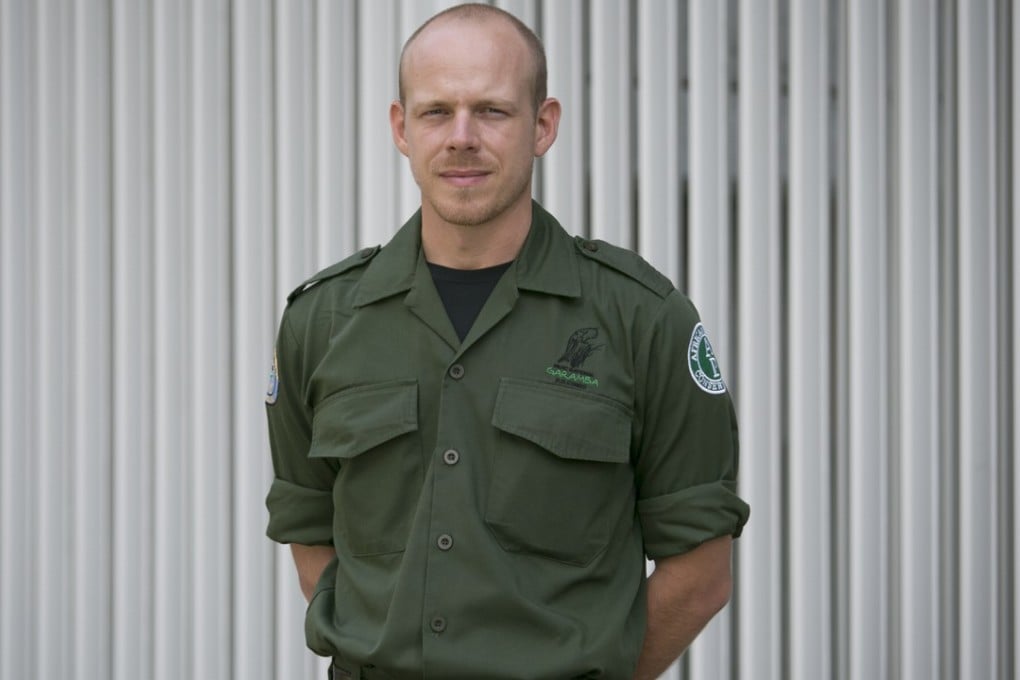Why Hong Kong should say no to ivory chopsticks: African park warden shot trying to stop elephant poaching appeals to city
Erik Mararv, of Congo’s Garamba National Park, talks about being shot by poachers, imprisoned on false charges and why it’s up to the Hong Kong public to stop elephants, and people, being killed for ivory

I’m third-generation African, with Swedish origins. I manage Garamba National Park (in the Democratic Republic of Congo) for South African NGO African Parks. Garamba is one of the oldest parks in Africa, created in 1938. I am 31 and was born and raised in the Central African Republic – one of those lost corners of the world, which only recently got a bit of media attention because there is a civil war going on there.
I spent my whole childhood trying to run away from the house, people and school into the bush. My mother wasn’t impressed but, fortunately, I had a father who had grown up the same way, so he supported me. From the age of about five, I’d run out as far as I could into the wild and get back as it was getting dark.
As I grew older, I was intrigued by the northern part of the Central African Republic, and at the age of 15 I started working as an apprentice guide there. I started my own safari company in 2006 in Chinko, which then became a protected area managed by African Parks.
The Chinko Project is an example of how, where wildlife can thrive, people do as well. When the Chinko Project started off, the only way to get any income for that region was through hunting, because no tourists would want to go to a country that was already classified as at full civil war.